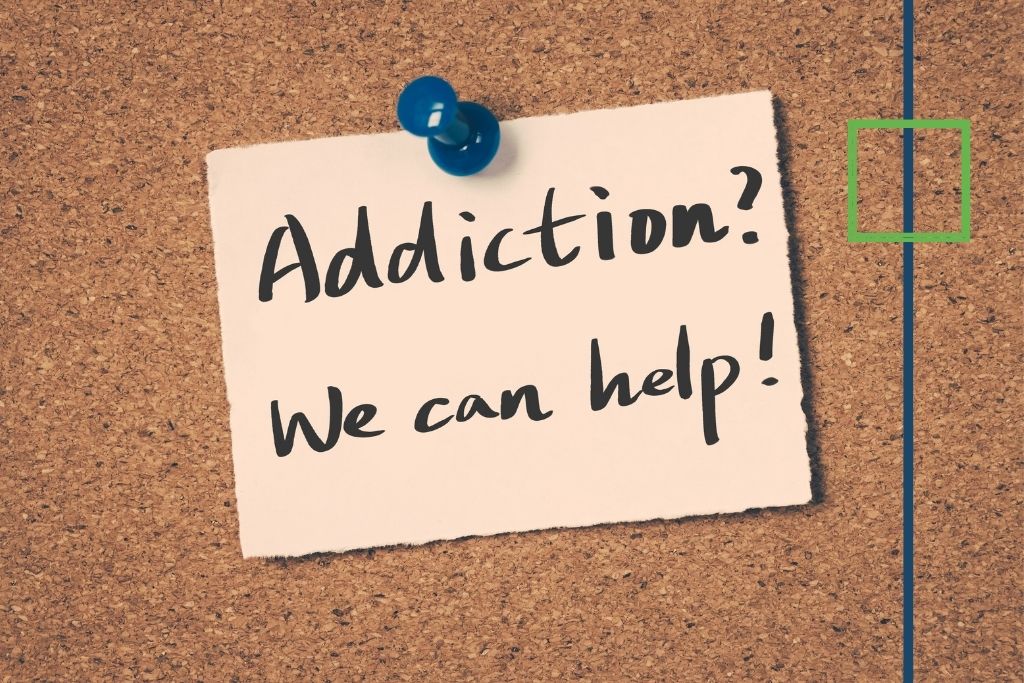What Is Xanax?
Xanax is the brand name of the drug alprazolam. It is a fast-acting benzodiazepine medication. That means it brings about a significant change in the brain in a short period of time. Like many other prescription drugs, people can become physically dependent upon taking this medication and develop a Xanax addiction. It treats anxiety, insomnia, and panic disorders but has a recognized potential for abuse. A Xanax high is described as tranquil, calming, and addictive. Risks are greater in people who take doses of 4 mg/day for longer than 12 weeks, but anyone who abuses the drug could be at risk for Xanax addiction. Someone with a Xanax addiction may use up to 20 or 30 pills per day.
Alprazolam (Xanax) is a controlled drug under the Controlled Substance Act by the Drug Enforcement Administration and Xanax has been assigned to Schedule IV. This is according to the US Drug Enforcement Administration (DEA) [1]. Despite concerns related to the long-term use of benzodiazepines such as Xanax, the percentage of adults in the U.S. with a prescription for a benzodiazepine increased from 4.1% in 1996 to 5.6% in 2013. Overdose deaths involving benzodiazepines (including Xanax) increased from 0.58 per 100,000 adults in 1996 to 3.07 in 2010. Moreover, data shows that 11,537 overdose deaths involving benzodiazepines occurred in 2017. This is according to the Centers for Disease Control and Prevention (CDC) [2].
Is Xanax Addictive?
Xanax, like other benzodiazepines, is a central nervous system (CNS) depressant. These types of medications increase gamma-aminobutyric acid (GABA), which slows brain activity. This can result in a sense of drowsiness and calmness, which makes them effective at treating anxiety disorders. Xanax also increases levels of another neurotransmitter called dopamine. Dopamine is responsible for reinforcing the feelings of reward in the brain. When it is released there will be an urge to get another. Xanax and other substances encourage addiction through this mechanism.
Many people use this drug with a doctor’s prescription, but the most common way to take the Xanax recreationally is by getting the drug from someone who has a prescription. Using or possessing a controlled medication without a prescription is a federal crime. It is also illegal to resell the medication. However, many people, especially young adults and teens, do not realize the risks of misusing prescription drugs.

Alprazolam (Xanax) is not only the most commonly prescribed benzodiazepine, but it is the most commonly prescribed psychotropic medication in the United States, accounting for more than 48 million prescriptions dispensed in 2013. Benzodiazepines, such as Xanax, are implicated in approximately one-third of intentional overdoses or suicide attempts. Xanax is significantly more toxic than other benzodiazepines in cases of overdoses and should be avoided in patients at increased risk of suicide, or who are using alcohol, opioids, or other sedating drugs. This is according to the National Center for Biotechnology Information (NCBI) [3]. Because Xanax is a CNS Depressant, common effects of the drug include slurred speech, loss of coordination, and anxiety.
Street Names For Xanax
- Xannies or Zannies
- Bars
- Handlebars
- Blue Footballs
- French Fries
- Benzos
- Ladders
- Sticks
Ways How Xanax Is Abused
- Snorting it
- Taking multiple pills
- Injecting it
- Taking it via blotter paper
- Taking it with other drugs or alcohol
Xanax Addiction Symptoms
Some of the physical symptoms of Xanax addiction are also similar to those of other drugs. Because of this, it can sometimes be hard to recognize which drug your loved one is abusing.
The symptoms are more severe if the person takes higher doses of Xanax and takes it more often.
- Tiredness
- Irritability
- Constipation
- Constant Fatigue
- Headaches
- Blurred Vision
- Unusual Sleeping Times
- Nausea
Psychological Symptoms Of A Xanax Addiction
A person suffering from Xanax addiction will exhibit certain physical, psychological, and behavioral symptoms, including:
Depression
- People who take Xanax have reported feeling deeply depressed and mentally uneasy.
Anxiety
- Anxiety can be described by uncontrollable and uneasy thoughts one feels. These thoughts can lead the person down a “rabbit hole” where the mind creates problems that cause distress and pain. Another concern is that the anxiety symptoms the Xanax is designed to treat could return in amplified intensity when the medication is stopped.
Insomnia
- Overtaken by stress and anxiety, a person who is in withdrawal from this drug may have problems falling asleep at night.
Mood Swings
- Random shifts in mood, such as quickly going from feeling euphoric to being depressed.
Suicidal Thinking
- Stress, anxiety, and intense nervousness that can happen during withdrawal can lead to or coexist with suicidal thoughts.
Difficulty Concentrating
- People can have cognitive issues for weeks after stopping Xanax.
Memory Problems
- Long-term Xanax addiction can lead to dementia and memory problems in the short term. Typically, memory functioning is restored within a few months of the initial withdrawal.
Xanax Withdrawal
People who have Xanax Addiction, for a long period of time will develop tolerance to the drug, though this can develop in just days. As the drug tolerance increase, the individual will have to take higher and higher quantities to experience the same effect. This intensifies the withdrawal symptoms when the person tries to stop taking Xanax.
Xanax withdrawal symptoms can be both physically and psychologically severe, and sometimes life-threatening in case of seizures. Therefore, an individual that is physically dependent on Xanax may require professional help in order to safely manage the Xanax withdrawal symptoms. Xanax withdrawal symptoms can take within hours of the last dose, and they can peak in severity within 1-4 days.
Xanax Withdrawal Symptoms
During Xanax addiction withdrawal, A Person Can Experience:
- Headaches
- Blurred Vision
- Muscle Pain
- Tremors
- Diarrhea
- Numb Fingers
- Sensitivity to Light and Sound
- Loss of Appetite
- Insomnia
- Heart Palpitations
- Sweating
- Anxiety
- Panic
- Paranoia
- Delerium
- Seizures
Xanax Overdose
An overdose on Xanax can be deadly, especially if the substance is taken with alcohol. Alcohol is particularly dangerous when mixed with Xanax because they are both Depressants; combining the two can lead to an overdose and respiratory failure.
Xanax should never be combined with other benzodiazepines like Klonopin, Valium, or Ativan. The effects of each drug can “stack” and increase the chance of overdose. Overdose can also occur if the pills are crushed or chewed, as the drug is designed to be time-released into the system. Xanax overdose symptoms include:
- Slowed Heart Rate
- Confusion
- Fainting
- Extreme Drowsiness
- Difficulty Breathing
- Muscle Weakness
- Loss of Balance
- Coma
Xanax Addiction Treatment
Medically-Assisted Xanax Detox
If a person decides to undergo at-home detox, they should inform their loved ones and seek help from a medical professional, such as a doctor or a nurse, to keep an eye on the process. Friends, family, and medical professionals can provide critical support to ensure medical detox continues as planned. While at-home detox is an option, people living with a severe Xanax addiction should seek professional treatment. Xanax withdrawal can cause serious complications.
Detox will usually be extended for those using a taper plan. A detox may take as long as several months because the process is based on whether the drug is still in the body. If a person has been abusing large amounts of Xanax, the tapering process may take a bit longer. A person may be able to taper faster while in a medical detox facility. The process typically involves medical support while the body clears the drug.
The half-life of Xanax is about 11 hours, so it takes the body 50 hours to completely clear it. There is only one recommended method for coming off Xanax and that is to taper the dose under medical supervision. Since medical detox is the only safe method, any other form of withdrawal from Xanax is not recommended.
Benefits Of Xanax Detox
There Are Many Benefits Of Attending A Professional Drug Detox Center, Such As:
- Drug Abuse Treatment Planning
- Peer Support
- Medical Care and Monitoring
- Safe and Drug-Free Environment
- Medications to Mitigate Withdrawal Symptoms and Reduce Cravings
- Mental Health Care
- Lower Risk of Relapse
Professional detox treatment can limit the distress of detox while ensuring your safety. Detox facilitates the removal of unwanted substances from the body and is an invaluable intervention to initiate recovery. Moreover, as a person seeking drug detox, you can expect several primary types of treatment.
Following detox, most clients will receive recommendations to continue with their Xanax addiction treatment. Any addiction treatment program for Xanax drug addiction should be integrated with individual or group therapy, mixed with non-addictive medications as needed, to reduce anxiety and depression.

Inpatient treatment is recommended if a person has severe Xanax addiction, and is at risk for dangerous withdrawal symptoms. Inpatient treatment offers 24-hour care as you will live in the detox center during treatment to maintain a safe, consistent environment with available medical intervention.
Behavioral Therapies
Cognitive Behavioral Therapy (CBT) and Dialectical Behavioral Therapy (DBT) can improve individuals’ behavior. CBT targets negative and maladaptive thought patterns as it promotes positive emotions and beliefs, while DBT helps individuals address conflicting impulses so they can make healthy choices. Both therapies treat substance abuse, anxiety disorders, and other mood issues. Therapy also empowers clients to identify, avoid and mitigate cues that trigger drug cravings.
Individual And Group Counseling
Xanax addiction and mental health counseling occur in both individual and group settings. One-on-one treatment sessions may address unresolved trauma, unconscious conflicts, and specific struggles, while group sessions often involve training in life skills, stress management, conflict resolution, and social connections. Group counseling also gives individuals the chance to share their thoughts and experiences to develop social support, which is important for lasting recovery.
Find The Right Primary Mental Health Treatment with Secondary Co-Occurring Addiction Diagnosis Plan
Inpatient medical detox and residential primary addiction treatment may be available at our affiliated facility at Level Up West Palm Beach Rehab. For some primary behavioral health treatment clients, medical detox and or addiction rehab may be required first. If you have a co-occurring severe substance abuse diagnosis, please contact us prior to beginning inpatient mental health therapy. Treatment services may vary. Please call us to learn which treatment options are most suited for your individual needs.